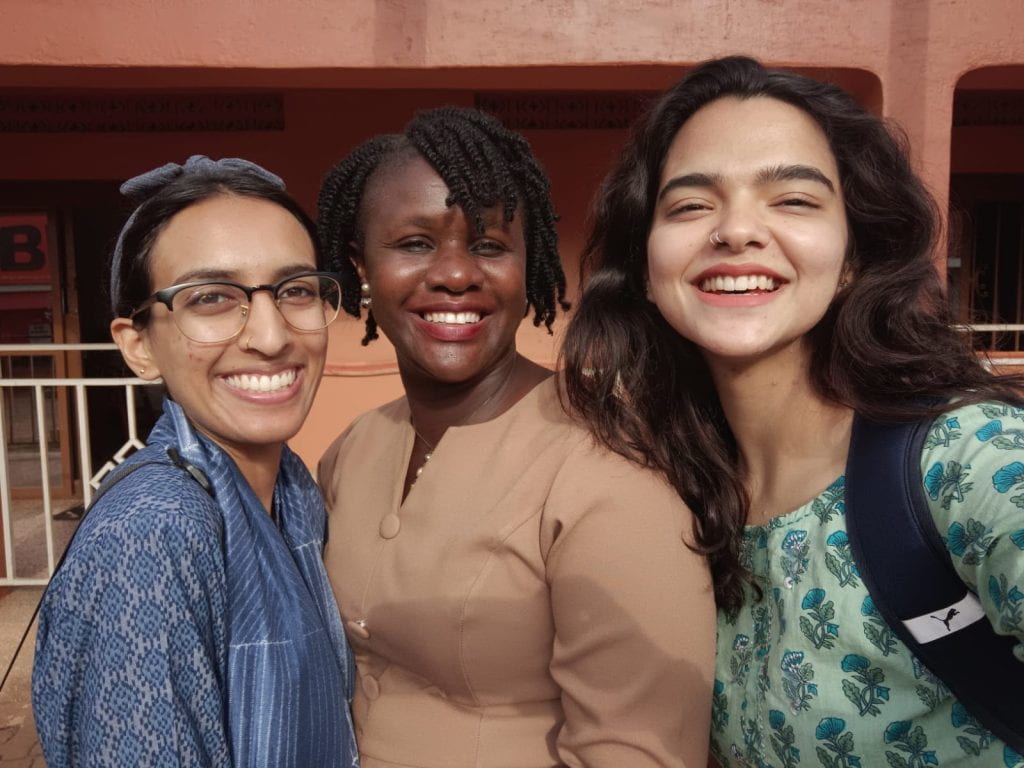Author: Mansi Kalra, MS IDEC’23
Before attending USF, I had only two overarching career goals. Firstly, to have a job that would allow me to travel, and secondly, to work directly with people. I was still navigating how exactly to make a career out of this but was slowly finding a very fulfilling niche that would allow me to do both.
After taking Economics of Development during my first semester, I could identify two areas of development in which I was keenly interested. Gender and conflict. When our professors presented their ongoing research projects at the end of the Fall semester, I was drawn to Professor Cassar’s project on reintegration in Uganda because it was at the crux of both of my interests. Her project would be working with formerly abducted women in Uganda to study reintegration following their kidnapping by the terrorist group the Lord’s Resistance Army.
Early in the Spring semester, I approached Professor Cassar and told her that I was interested in working with the children of these women to study the intergenerational effects of abduction. She was very supportive and allowed me to hone my research specifically working with children to assess different measures of their well-being. I am grateful to Professor Cassar for actively involving her advisees in this project and providing us with such a unique opportunity to travel to Uganda and conduct primary data collection. Moreso, this project quickly developed into more than just thesis research when it was picked up by The World Bank. The funding and support that we gained from the Bank allowed us to widen the research scope and conduct more than we previously thought was possible.
 In the picture (left to right): Mansi, Professor Christine, Anchal
In the picture (left to right): Mansi, Professor Christine, Anchal
In May, I arrived in Kampala at Makarere University along with my research partner, Anchal Khandelwal. We spent a week preparing to travel to the field, finalizing our surveys, and exploring the city. We arrived at the university right when their graduation week was beginning, and it was wonderful to be in the midst of so many proud students and their families. Following this, we drove six hours to Kitgum, Uganda. During our drive, we crossed the Karuma Bridge which marked our entry into Northern Uganda. At the time of the war, this bridge marked the entrance into the conflict zone and was frequently ambushed. Being in the field is unique in that you are constantly confronted with the history that up until then, you had only read about.
Upon arriving in Kitgum, we met our enumerators and field manager. I feel so fortunate to have worked alongside such kind, dedicated women who made this experience very fulfilling. Every person, from our enumerators to our drivers, made the research process run effectively and efficiently.
 In the picture: The research team in Kitgum
In the picture: The research team in Kitgum
My biggest takeaway from this project is that it takes an overwhelming amount of courage to not only face your trauma but to attempt to deal with it and heal it head-on. The women that we surveyed have lived incredibly difficult lives and hold unimaginable amounts of physical, mental, and emotional trauma. And yet, every day when we would break for lunch they would also have so many stories to share about their children and loved ones and how they are preparing for the harvest or a family member’s wedding. They had joy in their lives that they wanted to share, and it was touching to witness it. Also, it was clear that the trauma was not suppressed, but close to the surface. At each workshop, it was common for individuals to get emotional while telling their stories or recounting some of the things they had faced. I thought about how so many of us run from our pasts or try to suppress the bad memories or act like they never happened. But here, that was not the approach that I saw. Everyone wore their hearts on their sleeves, and there was a desire for more resources such as therapy to continue the work of healing. I hope that as this project continues, these women continue to receive the resources they need to improve their lives.
Mansi’s LinkedIn- https://www.linkedin.com/in/mansikalra/
